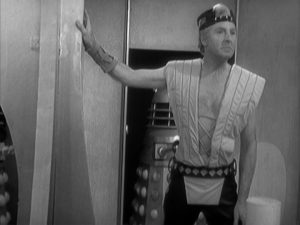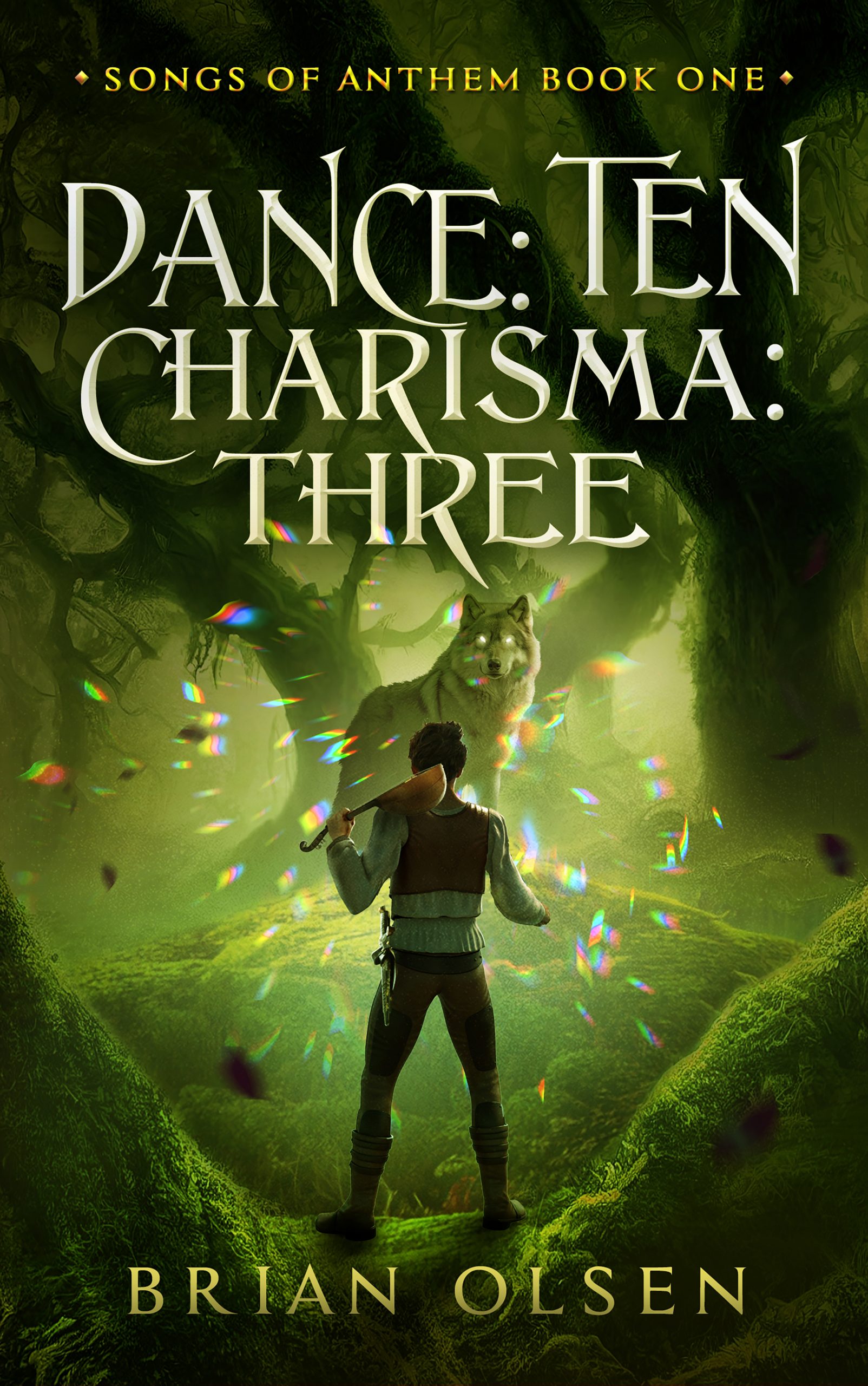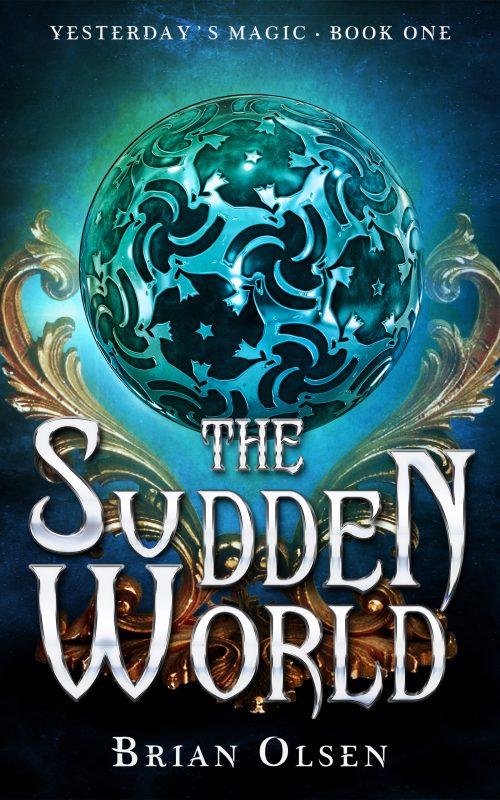
In “The Ambush”, the fourth episode of The Daleks, the Thals and the Daleks, centuries after the war that divided them, finally reunite. It does not go well. The Daleks have laid out food for the starving Thals, but it’s a trap. The Daleks are lying in wait, in the titular ambush, to blast the Thals as soon as they approach the spread. (Which, incidentally, contains several objects that I think are cylindrical white cannisters but which look an awful lot like rolls of toilet paper. Truly ingenious bait for a people who’ve just spent years hiking through the wilderness.)
Temmosus, the Thal leader, argues with Alydon, the Thal who Susan met last episode. Alydon is wary and fearful, mistrusting the Daleks’ offer. He wonders what reason the Daleks would have to help them, and worries that they might have been horrified or jealous to find that they were not the only survivors of the long-past war. Temmosus dismisses his concerns, saying his suspicions are “based on fear, and fear breeds hatred and war.” Not to mention, the Thals won’t last much longer without food – they have to accept the Daleks’ generosity. Temmosus believes that if they approach the Daleks peacefully, then the Thals’ good intentions will be clear, and friendship between the two peoples might grow.
Objectively, Temmosus is right. Forget everything we know about the Daleks from watching decades of cries for extermination. Temmosus’ people are starving, and another group is offering them help. There used to be conflict between them, but that was more than half a millennium ago. He has no reason not to take their offer at face value; in fact, to not do so risks the end of his species.
But narratively, Alydon is right. We, the viewers, know how evil the Daleks are, and we’re meant to see Temmosus as naive for ignoring Alydon’s warnings. Alydon is the wise one for listening to his instincts, which tell him that the Daleks mean them harm. Temmosus is punished for his foolishness with death; he’s the first one killed when the Daleks attack. The moral of this story is clear – don’t trust strangers. Beware of Daleks bearing gifts.
Wait, now. Is Doctor Who really telling its viewers that they should be suspicious of people who are different from them?
Sure seems like it! Later, the surviving Thals are mystified by the Daleks’ behavior. Alydon believes that if they can understand why the Daleks hate them, they can approach them differently and perhaps still make peace. But Ian already knows why – the Daleks dislike anyone unlike them. It won’t make a difference what the Thals do; the Daleks will always hate them. The Thals have difficulty believing this, but the narrative isn’t on Alydon’s side this time. Ian’s correct, of course. The Daleks are space-Nazis, remember, and he’s dead on when he says that their unblinking prejudice is irrational and evil. It’s wrong to dislike the unlike!
Except… wasn’t that Temmosus’ point of view in the prior scene? That Alydon was wrong to mistrust the Daleks just because of their differences? And didn’t the story lead us to believe that Temmosus was mistaken?
So Alydon was right to mistrust another people because they’re different, but the Daleks are wrong to do so. It’s a bit contradictory. I mean, yes, of course, you should definitely mistrust space-Nazis, but Alydon didn’t know they were space-Nazis until they started shooting.
Maybe we can untangle it by hearkening back to what I wrote about the last episode. The Thals are good because they look like idealized versions of us. The Daleks are bad because they don’t. Alydon had learned of the Daleks’ likely horrific appearance from Susan. If Temmosus had been wise enough to judge them based on that, like Alydon was, he’d have survived. It’s wrong to hate others because they’re different, unless they’re very different. In that case, they’re going to hate you, so it’s okay to hate them back first.
Geez. That’s a terrible lesson. I’m not saying it’s intentional; I don’t think Terry Nation was trying to “both sides” the space-Nazis. The intent is clearly that good-hearted Temmosus is deceived by the evil Daleks, and we’re not supposed to see Alydon’s worries as in any way similar to the Daleks’ bigotries. But that reading depends on us ascribing our own external knowledge to the characters. Alydon suspects what we know to be true about the Daleks; Temmosus should too.
It’s hardly uncommon for writers to assume (consciously or not) that viewers or readers will judge characters based on knowledge about the text that the viewers/readers have but the characters don’t. It’s very easy to gloss over that without thinking about it, but if you do, you might be absorbing a message the writers didn’t intend. Yes, the Daleks are killers, and we can feel sorry for poor Temmosus while wishing he had listened to Alydon. But in real life, it’s far more common for people to assume, based on little or incorrect information, that someone is a Dalek when they’re really a Thal. We know the Daleks are evil before they fire a shot, and within the bounds of this fiction, that’s not bigotry. But how many people believe they know some other group is evil, based on nothing more substantial than Alydon’s gut instinct? Isn’t that bigotry?
The real Nazis aren’t waiting in ambush; they let us know who they are, proudly, every day, and they’re the ones who want you to be suspicious of others. When it comes to judging people you don’t yet understand, be a Temmosus, not an Alydon. Like the Thal said, suspicion is based on fear, and fear breeds hatred and war.


